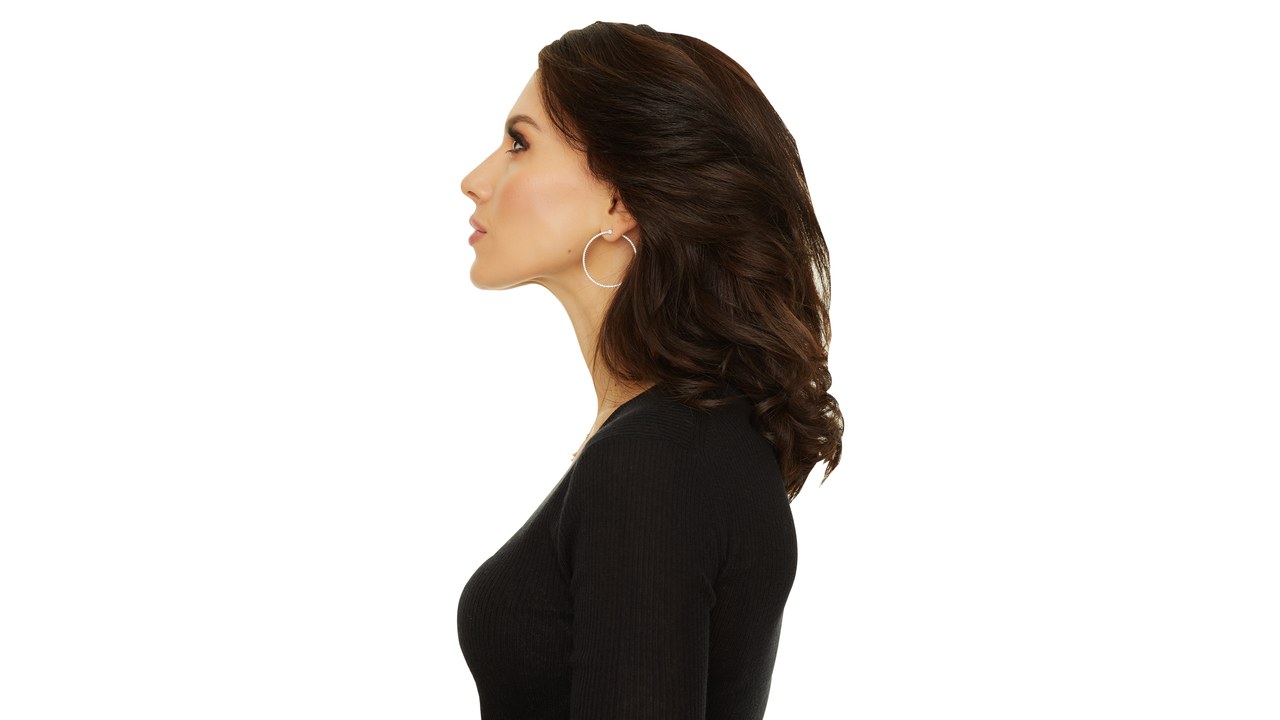Hilaria Baldwin: ‘There’s No Right Way to Deal With a Miscarriage’

Hilaria Baldwin, author, yoga instructor, and cohost of the Mom Brain podcast, suffered two miscarriages last year—one around 10 weeks and the other at four months. Throughout both, Baldwin was radically open about her experience, sharing her losses in real time and inviting the women in her 700k-strong Instagram community to share their stories too.
In a Glamour exclusive, Baldwin opens up about the experience of hearing thousands of women’s miscarriage stories, the common threads of shame, and the power of speaking out.
Last April, I had a miscarriage at around 10 weeks. I have had a couple of chemical pregnancies in the past, but this was my first miscarriage after hearing a heartbeat. The first time my husband Alec and I heard that baby’s heartbeat, it was weak and became weaker and weaker with each ultrasound. Eventually it stopped. I knew that the weak heartbeat was not a good sign, but I was still incredibly sad when, at that final ultrasound, the heartbeat went silent.
Some estimates say 1 in 5 pregnancies end in miscarriage. I had 4 babies and now a loss—I was the perfect statistic. We tried again and I got pregnant a few months later. We found out the baby was a girl—a little sister for our six-year-old daughter, Carmen. I was so excited to be a mom again.
In contrast to my spring pregnancy, this baby had a strong heartbeat. We were excitedly making plans—Carmen was setting aside her old clothes, and Alec and I dreamed about what it would be like to have a girl again after so many boys.
At four months (16 weeks), I went in for my regularly scheduled scan. As soon as the sonogram image appeared on the screen, I saw that my baby had died. There was no movement, no heartbeat. She was crumpled up, lifeless in my womb.
I began to cry. The doctor told me to hold still as she tried to figure out what had happened. I couldn’t stop sobbing. I can’t remember much except that I got dressed, thanked everyone for their care, and asked for permission to go. I just began walking. I got in a cab at some point, making calls, scheduling a follow-up D&E, and canceling work accordingly. I felt like I was in shock. I went into this appointment excited to see her and share pictures with my family and friends—I left needing to tell them all that she had died. It was a surreal turn of events.
Even though I’d had a miscarriage before, I don’t think I could have fathomed how bad it could feel to have a miscarriage at 16 weeks. I had to go home and sleep with my dead baby inside of me. I felt sick, sour in my belly, and so devastated. I kept waking up and thinking it must have all been a very vivid bad dream. I cried so much that my eyes were nearly swollen shut. I didn’t know the body could make so many tears. This was a pain that I had never experienced before, and it felt suffocating.
Through this pain, I knew that I needed to feel better. I needed to heal. I had to—for my babies, my husband, my loved ones, and myself.
When you feel so sad, you just want to crumble, and it is hard to be your own advocate—but you must be. I had to tell myself that I deserved to heal and to be happy again. This lesson became my mantra. Processing and going through grieving was important, but I didn’t have to be condemned to a life of emotional punishment and suffering.
As a woman, in charge of housing and growing a baby, it’s easy to feel guilty—as if you did something wrong to cause the miscarriage, no matter how many doctors tell you that’s not the case. Sometimes it’s easier to make ourselves the enemy, to blame ourselves, than it is to accept support and care.
